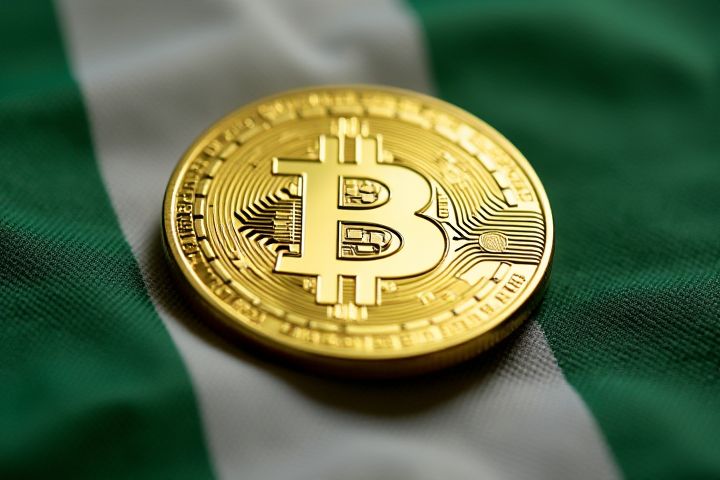
Nigeria has emerged as a significant player in the global cryptocurrency landscape, with a growing community of enthusiasts and investors. The country ranks among the highest in terms of Bitcoin volume and peer-to-peer trading platforms, reflecting widespread curiosity and engagement with digital currencies. Factors such as economic instability, high inflation rates, and limited access to traditional banking services have driven many Nigerians to explore cryptocurrencies as an alternative for financial freedom. Regulatory developments, including the Central Bank of Nigeria's mixed stance on digital assets, continue to shape the adoption landscape. By leveraging technology and innovative solutions, you can tap into the potential of Nigeria's vibrant cryptocurrency market.
Regulatory Framework
Nigeria's cryptocurrency adoption is heavily influenced by its evolving regulatory framework, designed to provide clarity and security for users and investors. The Central Bank of Nigeria (CBN) has taken significant steps to establish guidelines that govern the use of digital currencies while mitigating risks associated with fraud and volatility. In response to increasing interest in blockchain technology, the government is also exploring the potential of Central Bank Digital Currency (CBDC) to enhance financial inclusion. Understanding these regulations is crucial for anyone looking to participate in Nigeria's burgeoning crypto market.
High Adoption Rate
Nigeria exhibits one of the highest cryptocurrency adoption rates globally, fueled by factors such as economic instability and limited access to traditional banking services. The nation's youth, driven by the pursuit of financial independence, actively engage in various digital currencies, with Bitcoin and Ethereum leading the market. Peer-to-peer trading platforms and mobile wallet applications facilitate seamless transactions, enabling users to buy, sell, and exchange cryptocurrencies with ease. As regulatory frameworks evolve, the potential for increased investment and innovation within Nigeria's cryptocurrency landscape continues to expand, attracting local and international interest.
P2P Transactions
In Nigeria, cryptocurrency adoption has surged, primarily driven by peer-to-peer (P2P) transactions. This decentralized approach allows users to exchange digital currencies directly, bypassing traditional banking systems that often impose restrictions and high fees. Platforms like Binance and Paxful have gained popularity, enabling seamless trades in Bitcoin, Ethereum, and other altcoins among users. As a result, P2P transactions are empowering individuals in Nigeria to gain financial independence and access global markets.
Financial Inclusion
Cryptocurrency adoption in Nigeria significantly enhances financial inclusion, providing millions of unbanked individuals with access to digital financial services. With over 100 million people lacking traditional banking accounts, platforms like Bitcoin and Ethereum offer secure alternatives for transactions and savings. This shift enables users to participate in the global economy, fostering entrepreneurship and innovation among Nigeria's youth. By embracing cryptocurrencies, the Nigerian financial landscape is evolving toward greater accessibility and equity.
Youth Engagement
Cryptocurrency adoption in Nigeria highlights significant youth engagement, as approximately 60% of the population is under the age of 25. This demographic is increasingly interested in decentralized finance (DeFi) and blockchain technology, viewing these innovations as pathways to economic empowerment and financial inclusion. Local initiatives, such as educational workshops and online platforms, are designed to increase awareness and understanding of cryptocurrencies, fostering a community of informed investors. By leveraging smartphones and social media, Nigerian youth are revolutionizing their approach to traditional financial systems, making cryptocurrency a viable alternative for many.
Government Stance
In Nigeria, the government has shown an evolving stance towards cryptocurrency, reflecting both caution and interest in the digital economy. The Central Bank of Nigeria (CBN) issued a circular banning banks from facilitating cryptocurrency transactions in 2021, citing concerns over financial stability and fraud. However, recent dialogues indicate a potential shift, as authorities explore regulatory frameworks that could enhance innovation while safeguarding consumers. Engaging with decentralized finance (DeFi) platforms, Nigeria aims to harness the benefits of blockchain technology to stimulate economic growth and promote financial inclusion.
Blockchain Innovation
Cryptocurrency adoption in Nigeria has surged, driven by a growing interest in blockchain innovation. The country's vibrant technology ecosystem fosters startups and initiatives that leverage decentralized finance, enabling users to access financial services without traditional banking restrictions. Increasing investment in blockchain-related education empowers individuals to participate in this digital economy, highlighting Nigeria's potential as a leader in fintech across Africa. As regulatory frameworks evolve, you'll find more opportunities for secure and efficient transactions within this rapidly expanding digital landscape.
Economic Impact
Cryptocurrency adoption in Nigeria has significantly transformed the financial landscape, providing innovative solutions to the country's economic challenges. With over 40% of Nigerians engaging in crypto trading, this digital currency serves as a hedge against inflation and currency devaluation. The burgeoning industry fosters job creation through tech startups and freelancers, enhancing digital literacy and financial inclusion for underserved populations. By facilitating cross-border transactions, cryptocurrencies empower Nigerians to participate in the global economy, thereby driving local economic growth.
Financial Literacy
The rise of cryptocurrency adoption in Nigeria highlights the importance of financial literacy, empowering individuals to navigate the digital currency landscape effectively. With an increasing number of Nigerians participating in blockchain technology and trading, understanding concepts such as wallets, exchanges, and security measures becomes essential. Educational programs targeting cryptocurrency fundamentals can equip users to make informed investment decisions, ensuring they recognize both opportunities and risks. As your awareness deepens, you can engage more strategically in the evolving Nigerian crypto ecosystem, fostering responsible financial behavior.
Exchange Platforms
Cryptocurrency adoption in Nigeria is significantly driven by various exchange platforms, enabling users to trade digital currencies like Bitcoin, Ethereum, and Ripple. Popular exchanges such as Binance, Luno, and Quidax provide a user-friendly interface, allowing individuals to buy, sell, and store their crypto assets securely. The increasing access to mobile technology and the internet has accelerated this trend, offering innovative solutions for peer-to-peer transactions and decentralized finance (DeFi) initiatives. Your participation in this crypto market can contribute to the growth of financial inclusion and economic empowerment in Nigeria.
